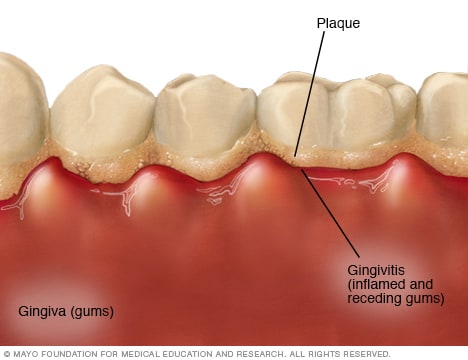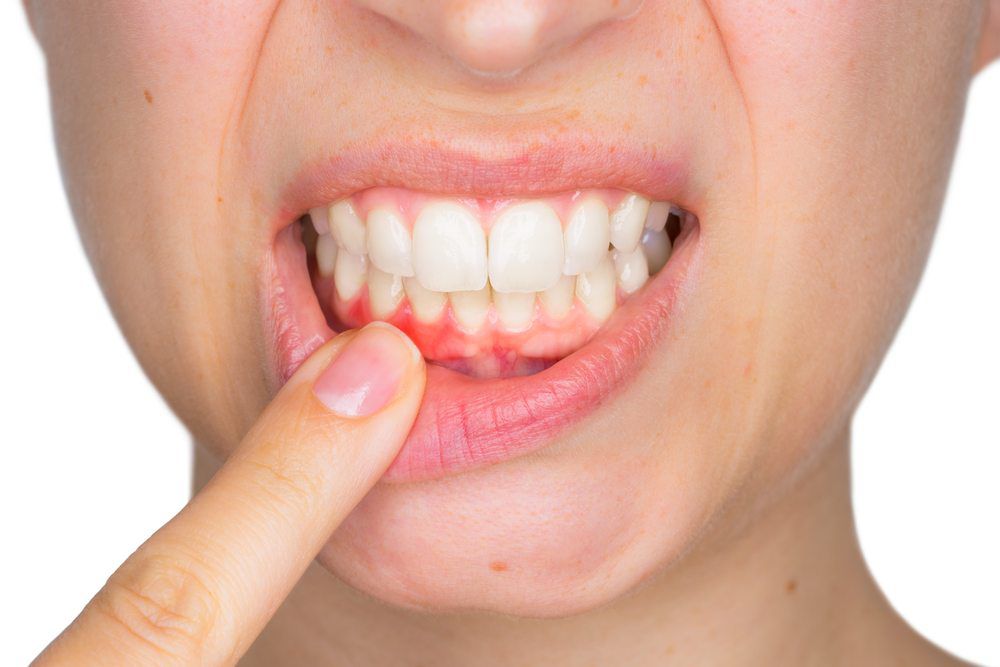What Are the Causes of Swollen Gums?

There are many reasons why you may have swollen gums. Some are simple, while others are more serious. These cases should be diagnosed by a dental professional. There are several home remedies that can help relieve swollen gums and prevent them from coming back. Here are a few to try: 1) Brushing your teeth at least twice a day can prevent swollen and painful tissues.
3) Brushing your teeth at a 45-degree angle and using a mouthwash containing antibacterial and antifungal agents can reduce the inflammation caused by swollen gums. Flossing and interdental brushes are good for cleaning between the teeth. Drinking water regularly can help stimulate saliva production and kill bacteria that cause gum disease. You should avoid sugary foods and drinks, as well as tobacco products. Additionally, you should visit your dentist to treat any problems associated with swollen and painful gingivitis.
Another cause of swollen gums is chronic infection. Infections in the mouth, such as oral thrush, can cause the gums to swell. Other infections can lead to the gums to bleed and swell. Your dentist will be able to diagnose the cause of your swelling and prescribe the appropriate treatment. It is vital that you visit your dentist regularly to keep your gums healthy.
Swollen gums can be prevented with good oral hygiene. Brushing your teeth at a 45-degree angle away from the gums will prevent a buildup of plaque and tartar that can lead to tooth loss. Moreover, you should also use floss or an interdental brush to clean your teeth and the areas between them. You should also brush your teeth every day and use an antimicrobial mouthwash. If you still find that your gums are swollen, you should seek a dental professional immediately.
Inflammation of the gums can also be caused by vitamin deficiencies and iron deficiency anemia. Symptoms of swollen and red gums may also indicate an infection. During the swollen period, you should not smoke or drink alcohol. These activities can irritate the gums and increase their sensitivity. If you have gum inflammation, your doctor may recommend taking antibiotics. If the inflammation is due to an infection, you should seek immediate medical attention.

Other swollen gums can be caused by chronic infections, such as oral thrush, which is a yeast infection. Besides, dental infections can result in swollen and tender gums. It is important to visit a dentist if you suspect swollen or painful swollen and bleeding gums. If you’re worried, make an appointment with a dental professional to check for any problems with your oral health.
If you have swollen gums, you should see a dental professional right away. Your dentist can help you with oral hygiene by using a special mouthwash and flossing. If you don’t have access to a dental professional, you can try home remedies that can soothe swollen gums. If you are concerned, you can also consult with your physician. If the swollen gums are due to a dental condition, you should consult your doctor or a dentist as soon as possible.
Swollen gums can be caused by a variety of reasons, but one of the most common is malnutrition. This is a common condition that often requires immediate medical attention. There are several ways to manage swollen gums, including eating healthy foods and drinking plenty of water. While home remedies may seem like the best way to treat your symptoms, you should see your dentist if you notice that the inflammation is severe or uncomfortable. For more information about treating swollen gums, see the articles on the website icoke.co.th.
Several home remedies for swollen gums can be effective in reducing inflammation. Lemon juice is a great source of vitamin C, which helps the body fight infections. It can also help with oral health by removing harmful bacteria from the mouth. Those suffering from chronic diseases should seek medical advice and consult their dentist. You can also consider a home remedy for swollen gums that contains castor oil and crushed camphor granules. These two ingredients have anti-inflammatory properties and can help relieve pain and discomfort.
While some home remedies can help with gum disease, there are many other things you can do to help with gum disease. For example, turmeric is an excellent antioxidant and anti-inflammatory agent. You can apply turmeric gel to your gums as a mouthwash to reduce inflammation. You should also avoid eating popcorn, as it can irritate your gums. You should also limit your intake of carbonated and sugary foods, which can cause swollen and sore gums.
